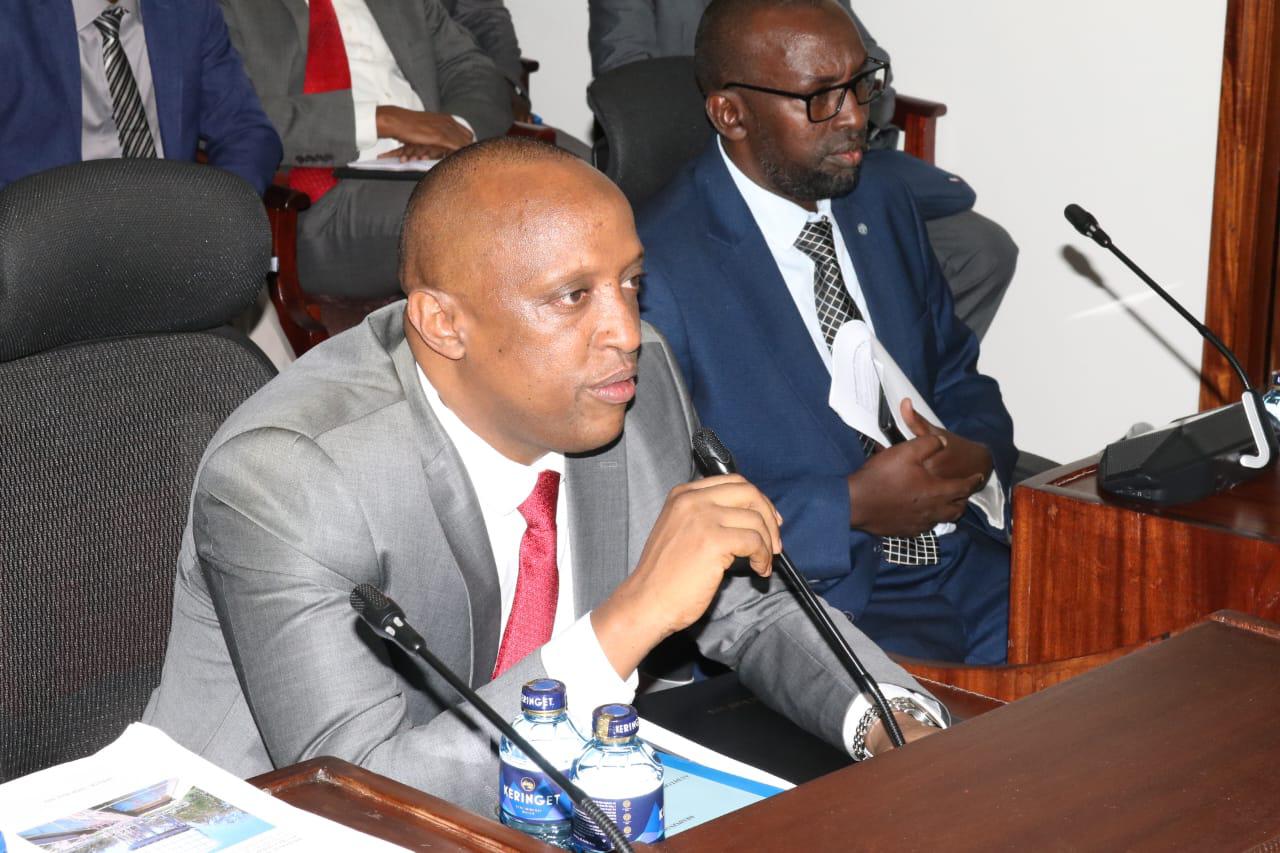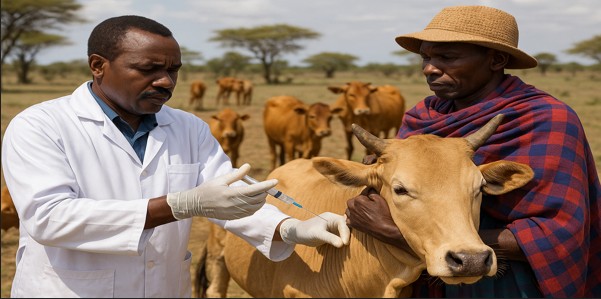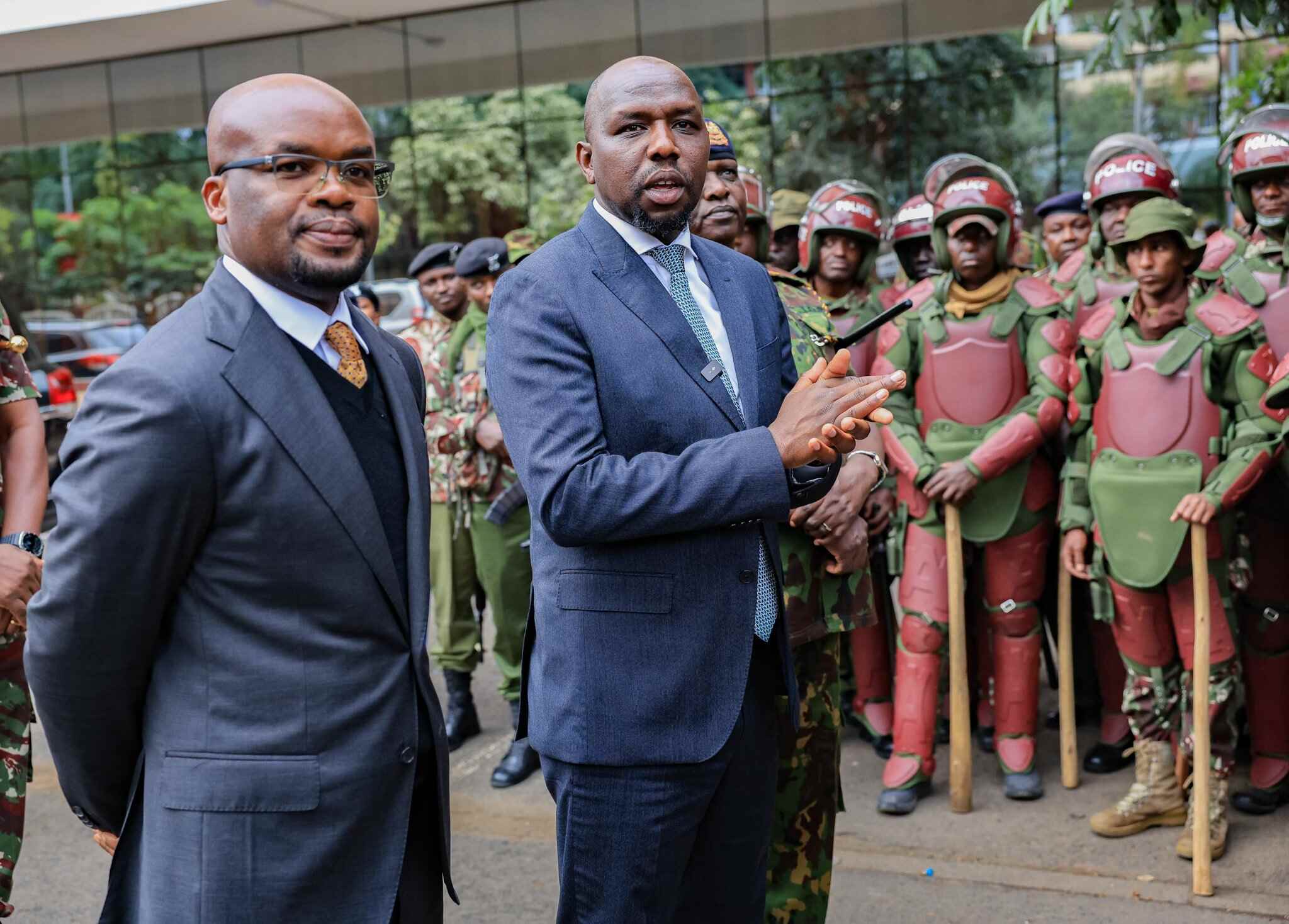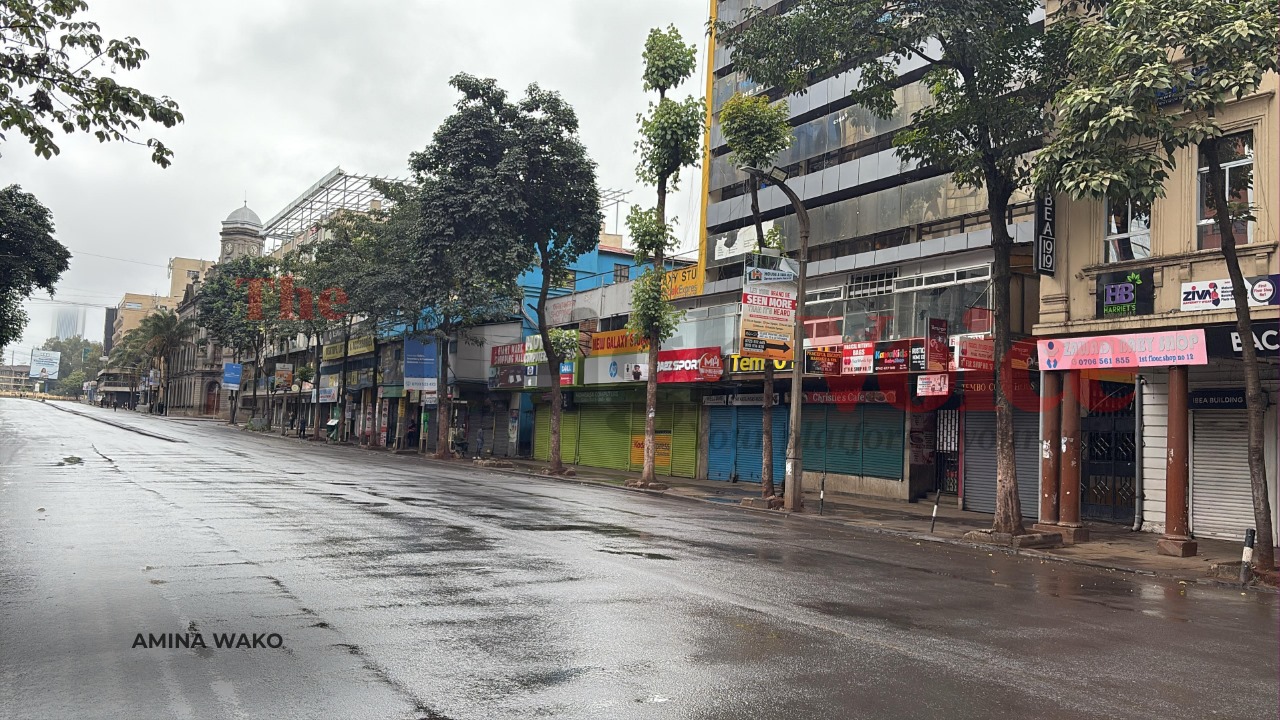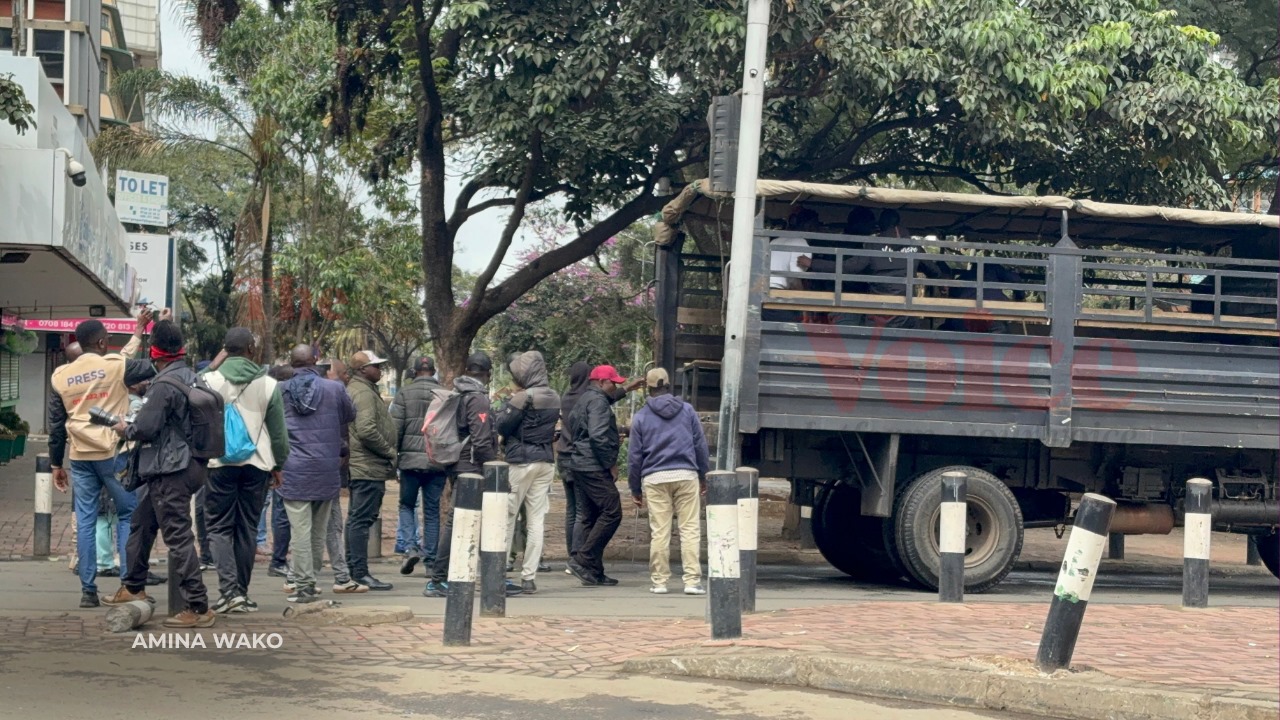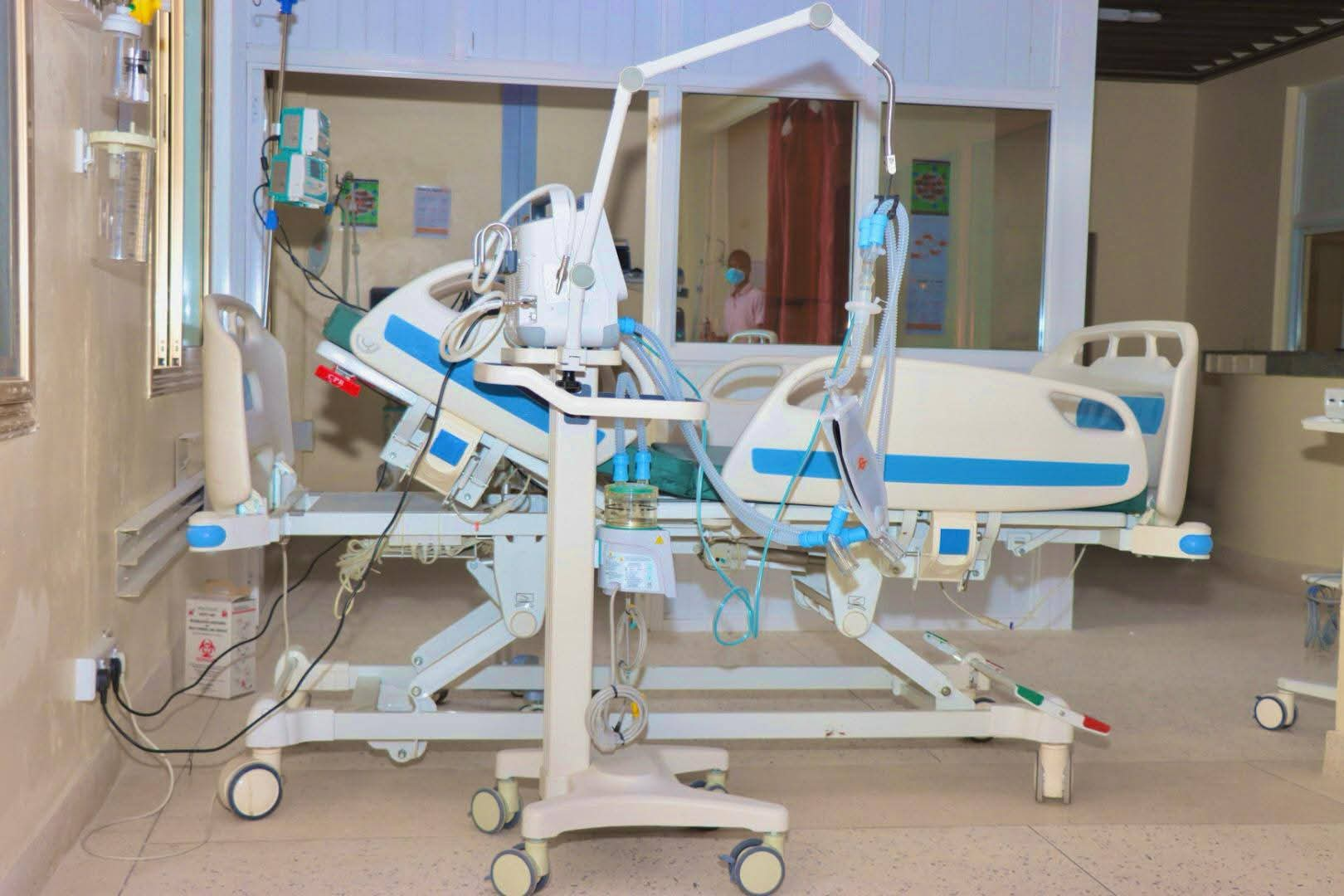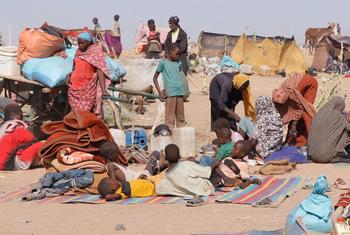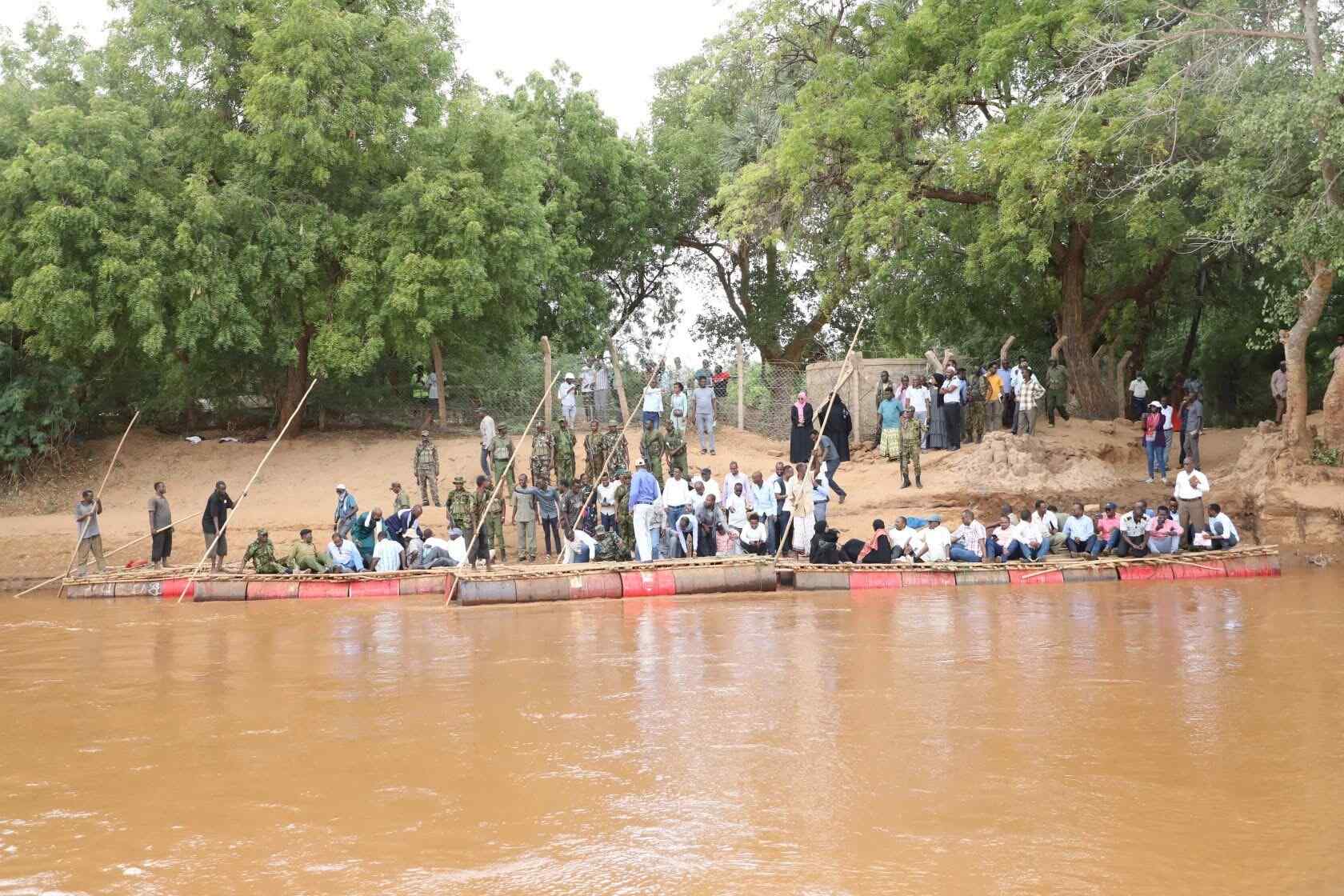Coronation of clan elders gains new popularity in north eastern Kenya
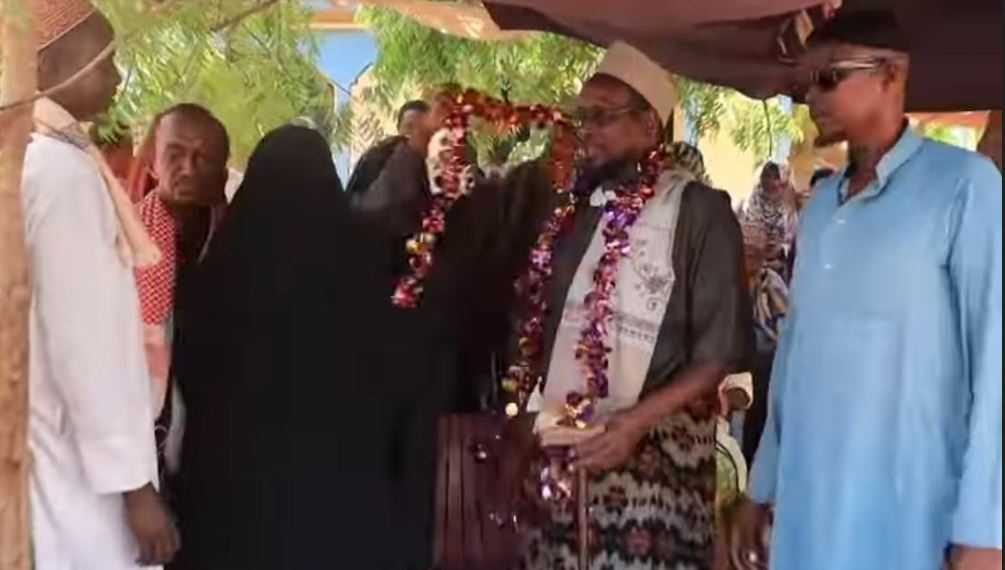
In Garissa, Wajir and Mandera counties, there has been an upsurge of coronation of clan elders.
Mohamed Ifiye Ali, 51, sits on a chair awaiting to undergo a traditional coronation ceremony which will see him crowned a Somali clan elder in Wajir town.
He is surrounded by elders, youth and women with containers of fresh camel milk. The milk is poured on the newly-installed leader, representing purity strength and prosperity for the community.
More To Read
- Why camel milk is gaining ground and why experts urge safer consumption
- How to make flavoured camel milk yoghurt at home
- Eastleigh’s beloved ‘bun’: A roasted, spiced coffee tradition steeped in culture and care
- How to make goat milk ice cream at home
- Herders worried as mysterious camel disease strikes Hurri Hills in Marsabit killing 20 in a week
- Camel milk: The superfood you should be drinking
The colourful traditional ceremony to crown Mohamed, who is from the Abkey Ahmed Guliye sub-clan of the Idris clan from the larger Degodia community in Wajir, was attended by religious leaders and several clan elders representing various communities.
The clan elders, representing seven other communities in Wajir, underwent a similar deeply symbolic Somali traditional ceremony.
As the inauguration ceremony begins, women, youth and other elders pour the camel milk on the new clan elder as women ululate in celebration.
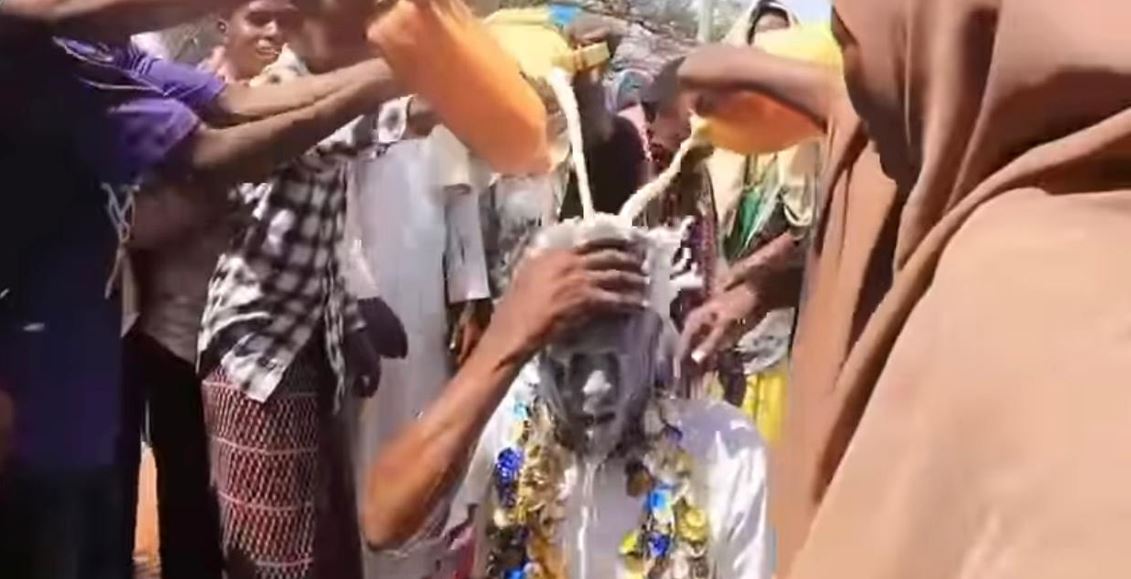 Community members pour fresh camel milk on Sultan Mohamed Ifiye Ali during his coronation in Wajir town on February 23, 2025. (Photo: Issa Hussein)
Community members pour fresh camel milk on Sultan Mohamed Ifiye Ali during his coronation in Wajir town on February 23, 2025. (Photo: Issa Hussein)
Symbol of power
Sultan Mohamed sat pensively, his eyes closed as the camel milk was poured on him, whitening his hair, and face and drenching his clothes before the next process in which he was donned in new clothes and offered a walking stick that symbolised power.
Sultan Hassan Aden welcomes him to join the ranks of seven other clan elders in Wajir.
"Today we are happy to receive the newly installed sultan representing the Abkey Ahmed Guliye sub-clan. We are now eight in number; we have been missing a representative from the community, now they have decided to appoint their own, we are ready to work with him," he said.
Several other clan elders who spoke welcomed the newly installed clan elder and urged him to uphold integrity and unite his sub-clan.
Religious leaders also preached on qualities of good leadership and patience over the responsibility entrusted upon him.
Osman Ali a youth who attended the ceremony, expressed joy over the installation of their new Sultan.
"Our community now has a representative at the council of elders. He will represent us on various cross-cutting issues. In case of community disputes, we have an elder who will settle them," he said.
Good leadership
The newly installed Sultan promised to offer good leadership based on wide consultation with community elders, local leaders and religious leaders.
In Garissa, Wajir and Mandera counties, there has been an upsurge of coronation of clan elders.
In December 2024, the Maqabul community in Wajir South installed Aden Abdi Madey as their new sultan in a ceremony attended by thousands of community members.
The event was graced by the Wajir South MP Mohamed Adow among other leaders from the community.
In a colourful ceremony, the crowned leader inherited a throne held by his late grandfather Sultan Mathey, 90 years after his death.
An elderly community leader who spoke said they have decided to take leadership back to the family that held 90 years ago due to the legacy of leadership left by the late Sultan Madey.
"Traditionally, leadership is about lineage. Your late grandfather is still remembered for his wisdom and leadership role. We still apply his rules and regulations to resolve disputes, we hope you will equally put into practice his leadership skills," he said amid applause from the community members who equally anticipated the same.
Aden Makina, a political analyst and author who spoke on the upsurge of the coronation ceremonies in north eastern Kenya, said the traditional clan leadership structure existed for a long time but somehow disappeared before it was recently reactivated.
Mediators
"The clan elders play a crucial role as mediators. They have a role in resolution of local and intra-clan disputes. Communities appoint a representative with oratory skills, wise and hails from a lineage that is recognised for their leadership skills," he said.
He noted that the traditional system has recently been abused after the inception of 2010 Constitution where clan elders have extended their role to political affairs.
He explained how clan elders in Garissa, Wajir and Mandera actively participated in negotiated democracy, a practice of agreeing on how to distribute political positions before elections.
According to him, the popular practice that catapulted governors, MPs and senators into leadership corrupted the traditional roles and responsibilities of the clan elders.
Political influence
He attributed political influence as the reason for the increased coronation ceremonies at the sub-clan level instead of the clan level.
Abdikadir Musa, a history teacher and current deputy principal at Galana Teachers Training College, had similar views.
"I have served in north eastern region as a high school teacher and I was perturbed by how our traditional leadership system was losing track. We need to restore order into the system and delink politics from the role of our clan elders," he said in an interview with The Eastleigh Voice.
He said political leaders were abusing the reputed traditional system to install clan elders ahead of elections to influence the outcome of the negotiated democracy.
He hailed the traditional system for its active role in conflict resolution.
He also urged local communities in north eastern to uphold the traditional virtues that existed previously on appointing clan elders, devoid of political influence.
Top Stories Today
